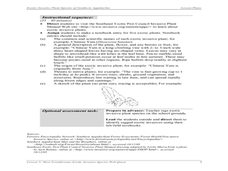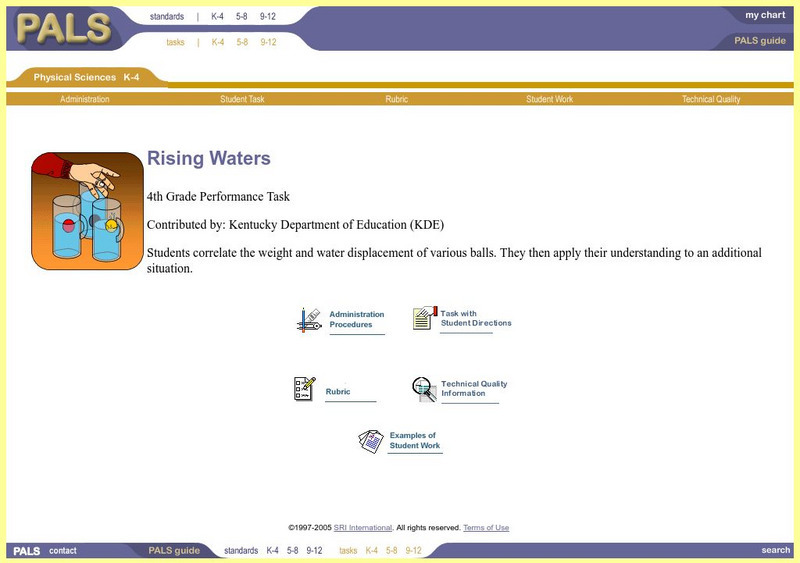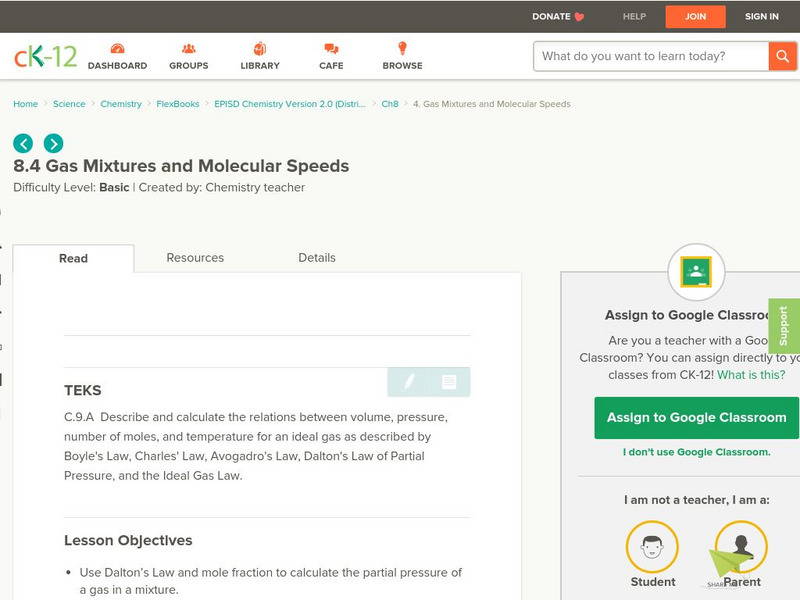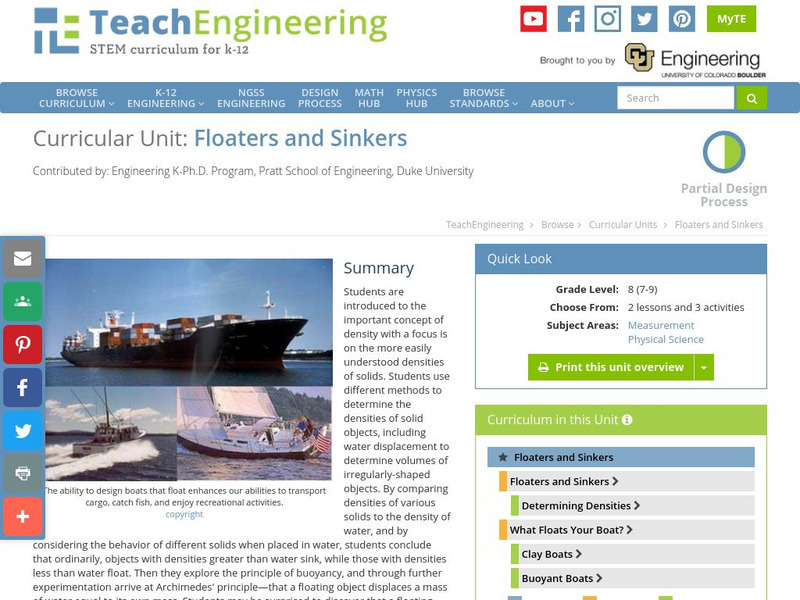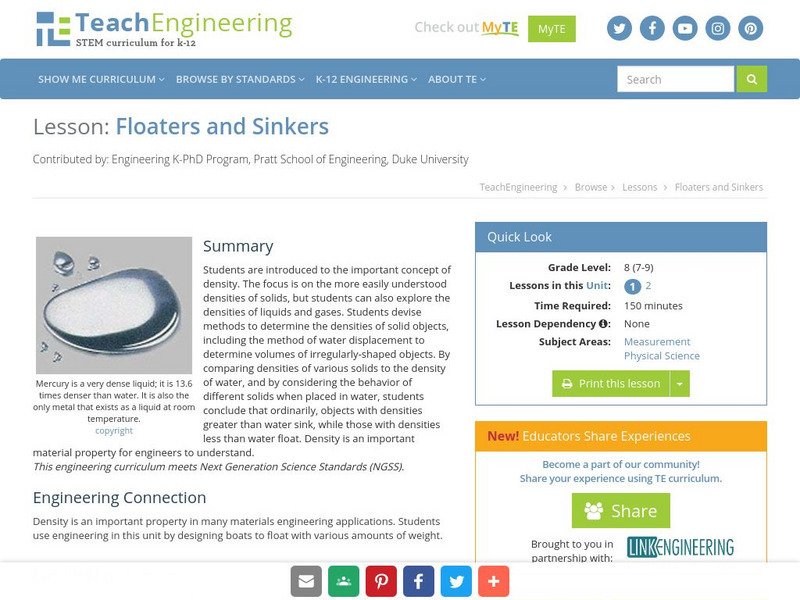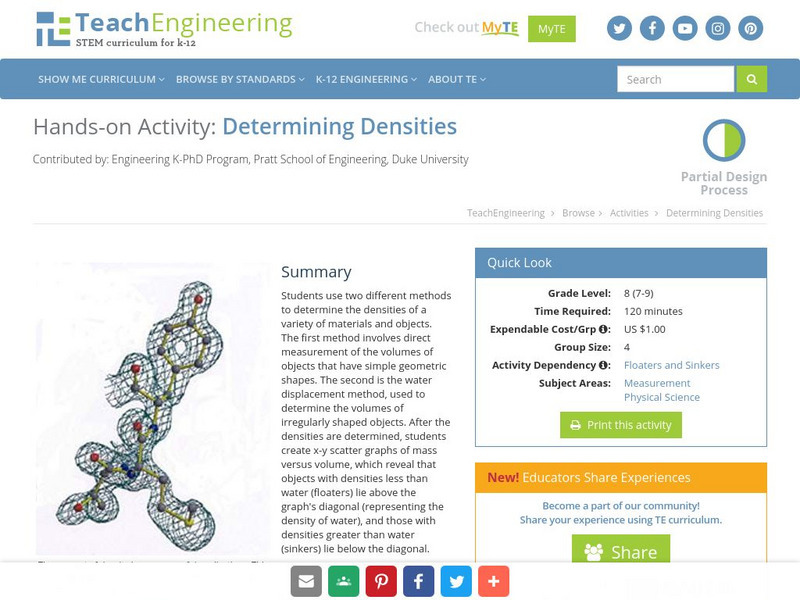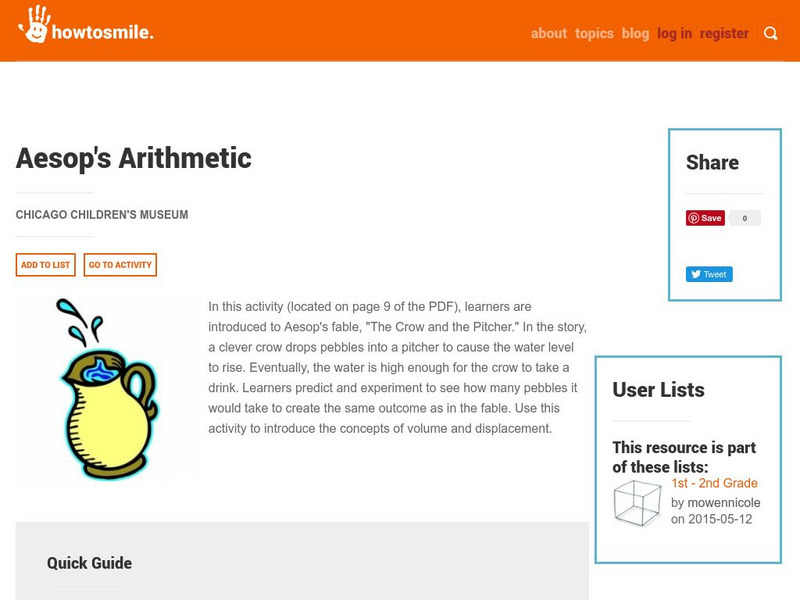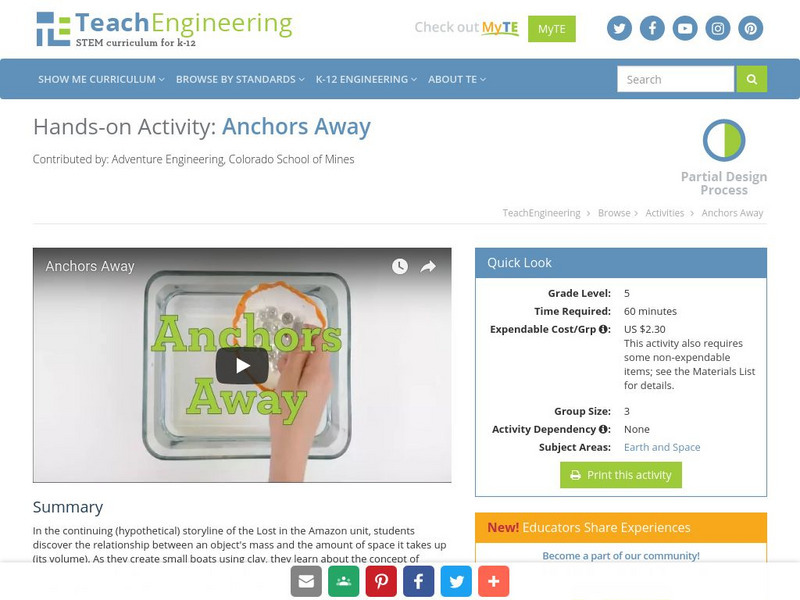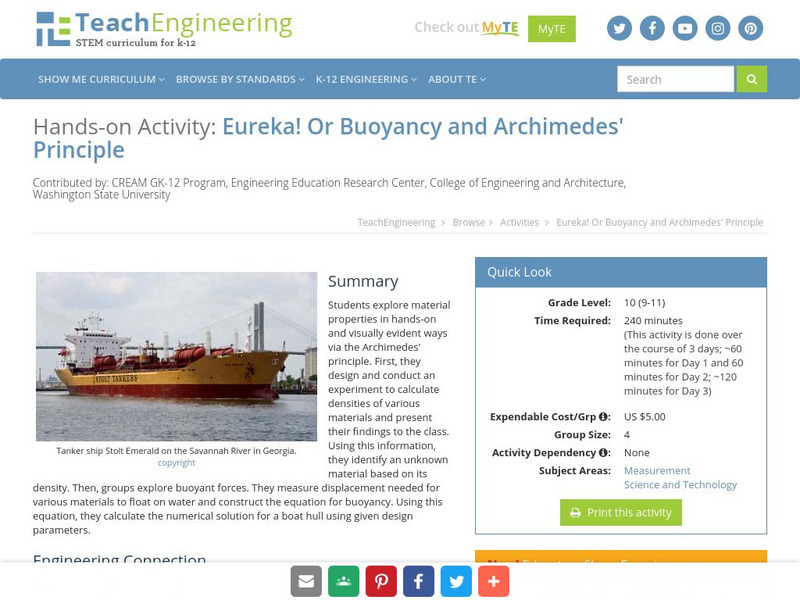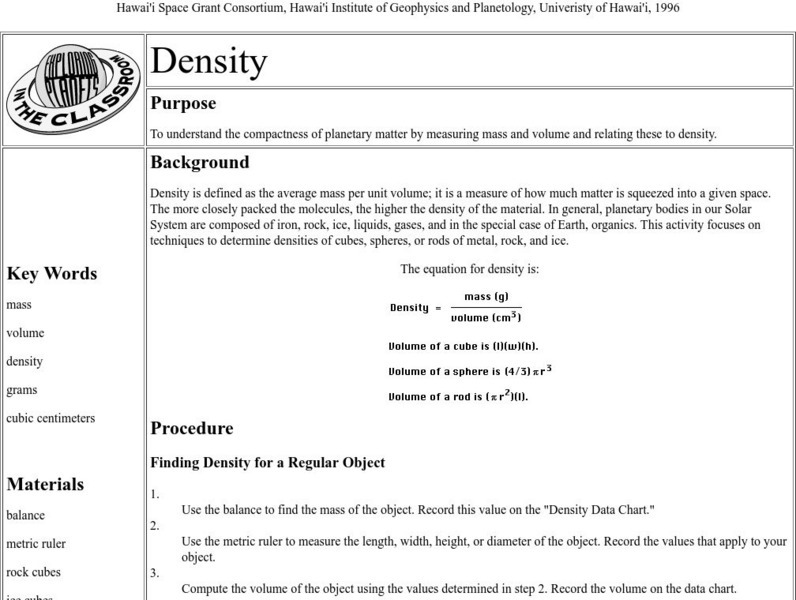Curated OER
Most Troublesome Exotic Invasive Plant Species Web Quest
Learners participate in a Web Quest activity in which they identify common exotic invasive plant species of the Southern Appalachian Region. After identifying the top 10 exotic invasive species, they choose one to research in depth.
Curated OER
Atoms, Kinetic Theory, Solids and Fluids
Students identify and describe the building blocks that make up an atom. They also compare the ages of atoms to the ages of the materials they compose,as well as, give examples that illustrate the small size of atoms.
Curated OER
It's A Gas
Young scholars build an organic waste methane generator and learn by running a scientific experiment to see what happens when people alter nature's way of recycling.
Curated OER
Volumw Measurement, English System
Eighth graders biew each volume container and discuss where they have seen them in their home, and how they have seen them used. They explore the different names of volume sizes and their equivalents towards one another. Students...
Curated OER
Mineral Replacement in Fossil Formation
Fourth graders explore fossils and how they are formed. They create their own "fossils" out of plaster of Paris. They record their findings in their science journals.
American Chemical Society
Middle School Chemistry: Finding Volume: Water Displacement Method
Students use the water-displacement method to find the volume of different rods that all have the same mass.
Science Struck
Science Struck: How to Find Volume With Water Displacement Method
Tells the story of how Archimedes discovered the Archimedes Principle and his water displacement method for determining the volume and density of an object. Provides an explanation and several examples of how it is done.
American Chemical Society
Middle School Chemistry: Finding Volume the Water Displacement Method
Discover how water displacement can help scientists accurately measure volume.
SRI International
Performance Assessment Links in Science: Rising Waters
A unique approach to determining size and weight of an object through water displacement: students are presented with a scenario along with a variety of balls made of different materials and pitchers of water. Working in small groups,...
CK-12 Foundation
Ck 12: Gas Mixtures and Molecular Speeds
[Free Registration/Login may be required to access all resource tools.] The following online tutorial helps students use Dalton's Law and mole fraction to calculate the partial pressure of a gas in a mixture. They will learn to calculate...
Science Buddies
Science Buddies: Moving Water With the Archimedes Screw Pump
Amaze your friends and family by moving water with just a few turns of your wrist, this is known as an Archimedes screw. In this science project, you will build a very simple Archimedes screw, to transfer water from a low-lying location...
Other
Sim Bucket: Density Lab
Use water displacement and a mass balance to determine the density of various objects in this interactive simulation.
PBS
Pbs Learning Media: Density Lab
Use water displacement and a mass balance to determine the density of various objects in this interactive simulation.
TeachEngineering
Teach Engineering: What Floats Your Boat?
Students use modeling clay, a material that is denser than water and thus ordinarily sinks in water, to discover the principle of buoyancy. They begin by designing and building boats out of clay that will float in water, and then refine...
TeachEngineering
Teach Engineering: Floaters and Sinkers
Through this curricular unit, students are introduced to the important concept of density. The focus is on the more easily understood densities of solids, but students may also explore the densities of liquids and gases. Students devise...
TeachEngineering
Teach Engineering: Floaters and Sinkers
This lesson introduces students to the important concept of density. The focus is on the more easily understood densities of solids, but students can also explore the densities of liquids and gases. Students devise methods to determine...
TeachEngineering
Teach Engineering: Determining Densities
Students will use two different methods to determine the densities of a variety of materials and objects. The first method involves direct measurement of the volumes of objects that have simple geometric shapes, while the second uses the...
Science Education Resource Center at Carleton College
Serc: Mn Step: Will the Cup of Water Overflow When the Ice Melts?
Young scholars predict and observe what happens when the ice cubes in a cup of water melt and displace water.
American Chemical Society
Middle School Chemistry: Chapter 3: Density
Six interactive chemistry lessons about density complete with handouts and animations.
Curated OER
Rising Waters
A unique approach to determining size and weight of an object through water displacement with a variety of balls made of different materials and pitchers of water.
Other
National Science Digital Library: Smile: Aesop's Arithmetic
A cross-curricular lesson integrating Aesop's The Crow and the Pitcher with an experiment testing the outcome of the fable using volume and displacement concepts.
TeachEngineering
Teach Engineering: Anchors Away
In this activity, the students will discover the relationship between an object's mass and the amount of space it takes up (its volume). The students will learn about the concept of displacement and how an object can float if it...
TeachEngineering
Teach Engineering: Eureka! Or Buoyancy and Archimedes' Principle
Students explore material properties in hands-on and visually evident ways via the Archimedes' principle. First, they design and conduct an experiment to calculate densities of various materials and present their findings to the class....
University of Hawai'i
Density (Lesson Plan)
The purpose of this lesson plan is to find the density of regular (volume can be with a mathematical formula) or irregular objects through water displacement. Uses actual SI units (g/cubed cm).
Other popular searches
- Volume Water Displacement
- Displacement of Water
- Volume by Water Displacement
- Measuring Water Displacement
- Water Displacement Method
- Volume Displacement of Water
- Water Displacement Math
- Mass vs. Water Displacement
- Mass vs Water Displacement


